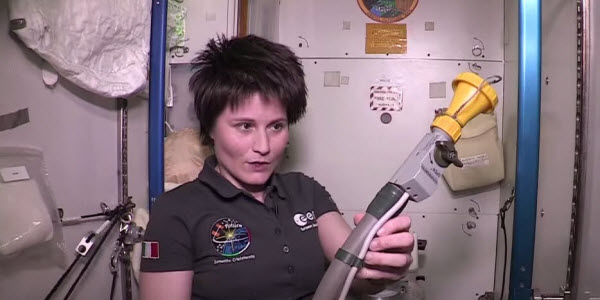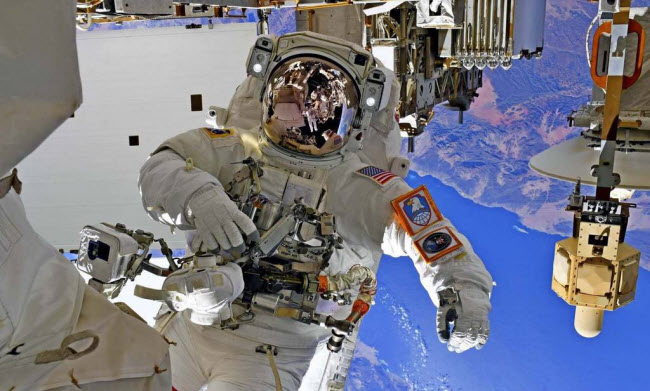Becoming an astronaut might seem like a dream job for many children, filled with excitement and adventure. Movies often depict astronauts as heroes, floating in the vastness of space or landing on distant planets to explore or encounter alien life. While it is a profession worthy of admiration, the reality of being an astronaut comes with its own set of challenges, both physical and psychological. Despite advances in space technology, astronauts continue to face significant difficulties during their missions, and many of these issues remain unresolved.
In this article, we explore the various challenges and complaints astronauts face during their time in space.
Training That Feels Like a Nightmare
It is a widely accepted fact that becoming an astronaut is no easy feat. Thousands of applicants vie for the position, but only about 1% are selected based on stringent criteria. These selected candidates undergo rigorous training, both physically and mentally, to prepare for the challenges of space. Even after selection, astronauts continue to face intense and difficult training exercises. For instance, they might spend days submerged in a massive pool to practice underwater procedures while wearing a space suit. Another example is the “vomit comet,” a special aircraft that simulates zero gravity by flying in parabolic arcs. After such exercises, astronauts often emerge feeling dizzy and nauseous.
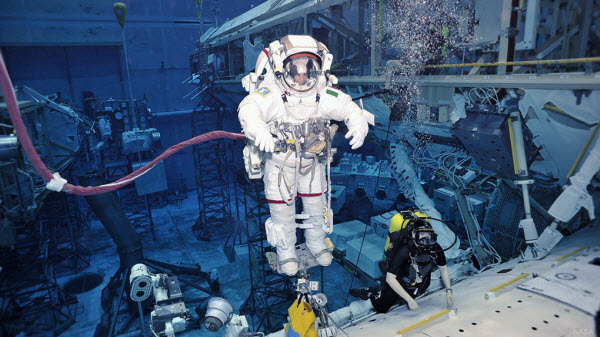
Dizziness and Vomiting
Nausea is one of the most common problems astronauts face. The lack of gravity or reduced gravity can disrupt the inner ear, which is responsible for balance, leading to dizziness and nausea. Although astronauts typically adapt to this condition, known as “space adaptation syndrome,” within a few days, other long-term issues make nausea a constant threat during missions. Spaceships and space stations are known for their unpleasant odors, partly because they are enclosed spaces. Astronaut Chris Hadfield noted that the toilet is located in the middle of the International Space Station (ISS) and is used by up to seven people, making it a source of discomfort for everyone on board due to the smell.
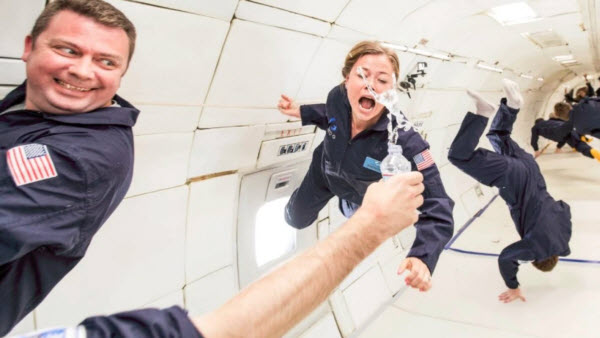
Skin Peeling
When astronaut Tim Peake was asked about the most dangerous thing he faced while living in space, he replied that it was watching the soles of his feet peel away. This is due to the lack of gravity, which means astronauts do not use the soles of their feet in space, causing them to become as soft as those of a newborn. On Earth, our feet build up calluses due to walking on hard surfaces, but in space, this does not happen, leading to the shedding of dead skin. Therefore, astronauts must be careful when removing their socks to avoid releasing a cloud of dead skin cells into the air.
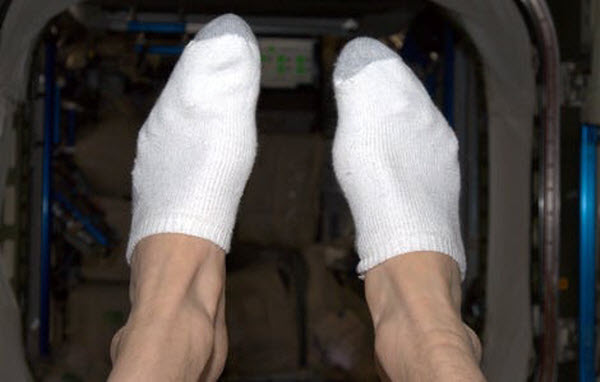
A Bit of Madness
When the COVID-19 pandemic hit in 2020 and forced people into isolation, many experienced feelings of loneliness and frustration. This led to questions about how astronauts, who are constantly isolated on the ISS, cope with their environment. Astronauts have reported suffering from sleep deprivation, isolation, loneliness, depression, anxiety, stress, fatigue, mood swings, difficulty concentrating, and the constant routine of going to bed without their loved ones. To combat this isolation, they try to stay as busy as possible with work.
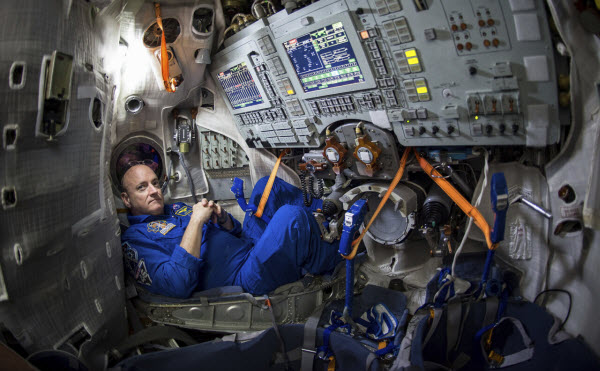
Hearing Loss
While space itself is a vacuum without sound or air, the equipment and machinery on space stations and spacecraft are noisy. The constant whirring and vibrating of mechanical and digital systems can be unbearable, leading to partial hearing loss. American astronaut Bill McArthur and Russian cosmonaut Valery Tokarev reported hearing loss after their stay on the ISS in 2006, where noise levels from machinery reached 75 decibels. According to the Centers for Disease Control and Prevention (CDC), prolonged exposure to such noise levels can cause hearing loss.
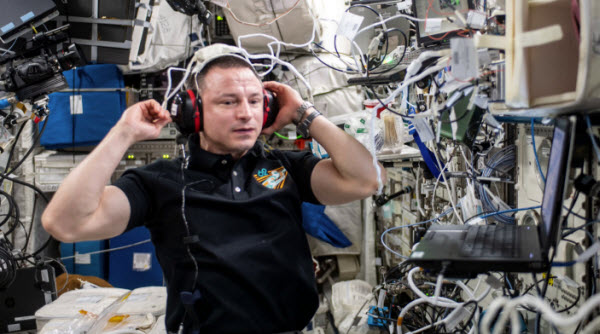
Sleep Disturbances
After a long day of complex calculations and engineering tasks on the space station, you might think astronauts deserve a good night’s sleep. Unfortunately, several factors conspire to prevent this. For instance, there is the constant noise from the station’s equipment and the bright lights that astronauts see even when their eyes are closed, believed to be caused by cosmic rays passing through their eyelids. Additionally, the ISS experiences around 16 sunrises and sunsets each day, which disrupts circadian rhythms. Lastly, the lack of gravity means astronauts have to strap themselves to a wall to avoid floating around their compartment while sleeping.
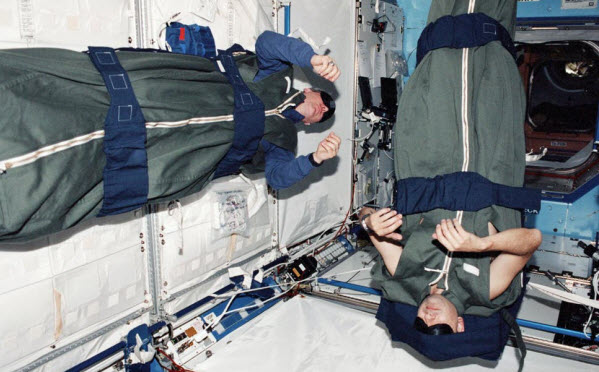
Radiation Exposure
Space radiation poses a significant threat to human health. Fortunately, Earth’s atmosphere and magnetic field act as a shield against most cosmic radiation. However, the ISS lacks this protection, and astronauts are constantly exposed to cosmic radiation similar to what survivors of the atomic bombings in Hiroshima and Nagasaki experienced. Astronauts on the ISS face up to 2000 millisieverts of radiation, the unit that measures biological damage from ionizing radiation, due to continuous bombardment by high-energy protons and ions. NASA is continually working on ways to limit radiation exposure for astronauts by reducing their time on the ISS.
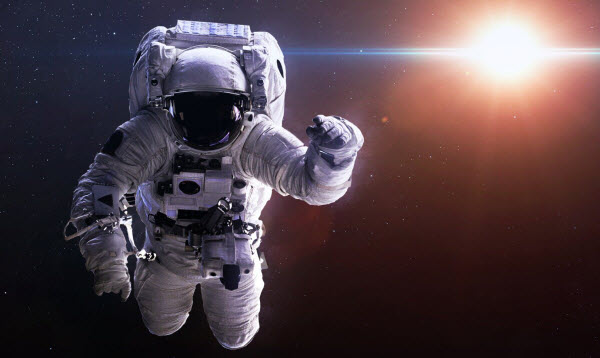
The Need for Gravity
Earth’s gravity is essential for the human body. In its absence, the body experiences several issues, such as dizziness, skin loss, and sleep disturbances, as mentioned earlier. Additionally, without gravity, burping becomes impossible, making it difficult for gas to escape from the stomach, resulting in a large ball of acid. Gravity also helps determine your height on Earth by compressing your spine. In its absence, astronauts can grow taller as their spine elongates due to the lack of compression. When they return to Earth, their spine compresses again just as quickly. Korean astronaut Soyeon Yi noted that both experiences were extremely painful, as she grew an inch taller in space within three hours and shrank back down upon returning in the same short time frame, causing severe back pain.
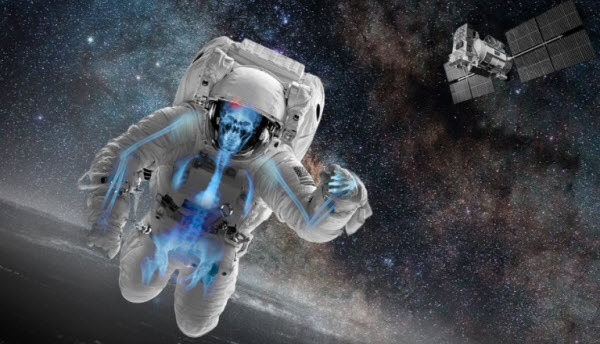
Negative Effects on Bones and Muscles
Space exploration has a significant impact on astronauts’ bones and muscles. In the absence of gravity, several problems arise, such as muscle atrophy and uncontrolled blood flow, which often leads to puffy faces and weak legs. It can also cause blood clots in the jugular veins, which can be fatal. Due to reduced muscle use, astronauts’ muscles weaken, forcing them to exercise regularly to prevent muscle atrophy. Even then, they must undergo physical therapy for one to two months upon returning to Earth. The same applies to bones, which, like muscles, depend on gravity. Astronauts are more prone to osteoporosis while in space.
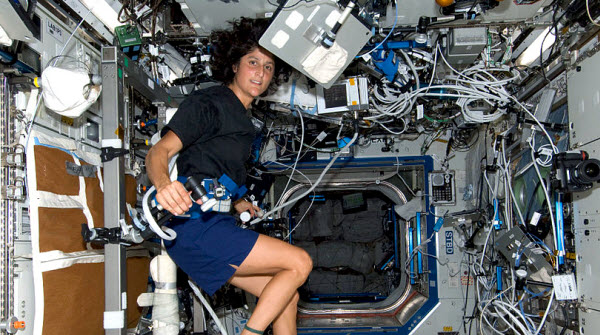
Using the Toilet
Despite all the issues mentioned, astronauts consider using the toilet in space to be the worst. NASA records show that astronauts unanimously agree that their least favorite part of space life is going to the bathroom to defecate or urinate. The process involves using a machine to suction urine from below and then converting it into drinking water. Defecation is the worst part, as it involves filling a toilet opening with feces, which the astronaut then has to collect and store while wearing rubber gloves. However, due to the lack of gravity, some feces escape through the opening and float around the station. The only solution for astronauts is to chase and catch the floating feces as if it were a game.
